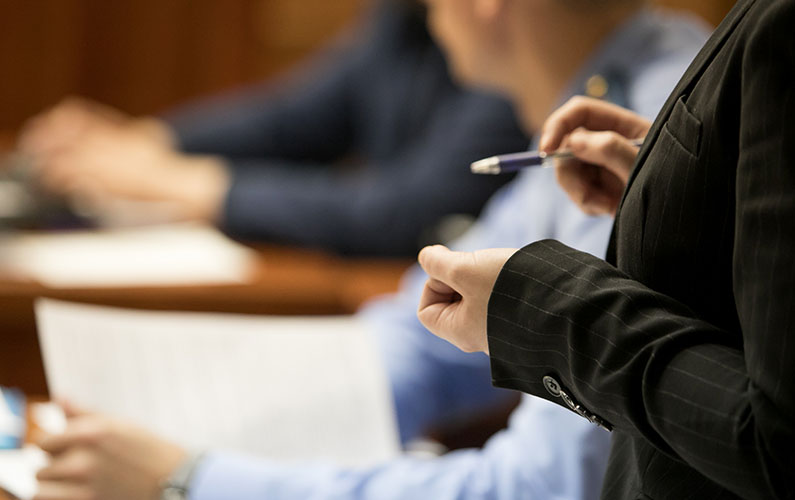Section 906.11 of the Wisconsin Statutes provides for the “Mode and order of interrogation and presentation.” The word “interrogation” is wonderful, isn’t it? Basically, this is the statutory provision that lets trial attorneys cross-examine witnesses. 906.11(a) Wis. Stats., provides some further fun detail: “[M]ake the interrogation and presentation effective for the ascertainment of the truth.”
Every jury trial seems to have some drama. And usually that drama occurs when witnesses are cross-examined. The entire outcome can hinge on cross-examination. And yes, that’s often when the jury is able to “ascertain the truth.”
How do you perform an effective cross-examination? Candidly, it isn’t easy. And every time the judge makes that statement – “counsel, you may cross-examine the witness” – there is some anxiety. Because the jury is expecting something. Cross-examination of a witness is an art not a science. It takes skill, experience, and sometimes a little bit of luck.
Trial attorneys tell war stories. War stories are moments during trials that make for good storytelling, and often they involve cross-examinations of key witnesses. One of my favorite war stories involves just that.
The case was Digicorp v. Ameritech, 256 Wis. 2d. 1046m 650 B,W,2d 321, was a case that we tried in Brown County before now federal court district judge William Griesbach. The legal issues involved were the subject of appeals all the way to the Supreme Court, and the case has now become strong precedent setting forth the parameters of the economic loss doctrine. But that legal issue issn’t very dramatic. One of the cross-examinations of a defense witness in the case, however, was just that.
The case involved termination of our client’s Ameritech dealership. It turns out, though, that Ameritech’s own district manager was a bad actor. As the appellate court said in its decision, the “facts were quite convoluted.”
Ameritech, with a seemingly bottomless budget to defend our claims, hired an expensive “business ethics” expert who was a professor at Yale. This Yale professor’s testimony was highly critical of our case, and the jury seemed to find him persuasive. So the cross-examination was critical to our likelihood of success. During the professor’s direct testimony he commented on the plaintiff’s expert report, and stated the lack of “source citations” was something his “first year students would have done better.” That hurt.
But as he was testifying, I was looking at this professor’s own report. And to my delight I noticed something significant.
The cross-exam was short.
- Professor, you stated during your direct examination that even your first year students knew diligent work needs source citations, correct? Yes.
- Professor, it would be wholly improper to submit a report that did not have source citations, correct? Yes.
- And any such report should be considered defective, and this jury should not consider it, would you agree? Yes.
- Professor, please look at Exhibit 12. That is your report, am I correct sir? Yes. That is my report.
- Professor, please take your time. And look through your report. And point out for this jury where are the source citations in your report?
There was a long pause. For this professor had somehow failed to put any source citations in his own report. Finally, he had no choice but to answer the question, which he did quietly and reluctantly:
“There are none.”
Which allowed me to state, with as much as drama as possible, “[T]hen I have no further questions, Professor. Thank you.”
I then turned to my co-counsel sitting next to me, whose father also just happened to be a Yale professor. I whispered to him … “I guess a Yale degree isn’t all it’s cracked up to be, huh?”
Perhaps it’s just us trial attorneys. But those are the moments we live for. Make sure the trial attorney you choose for your case takes as much pleasure and pride in those moments as I did then.
Oh, and we won big. Which is always a plus.

